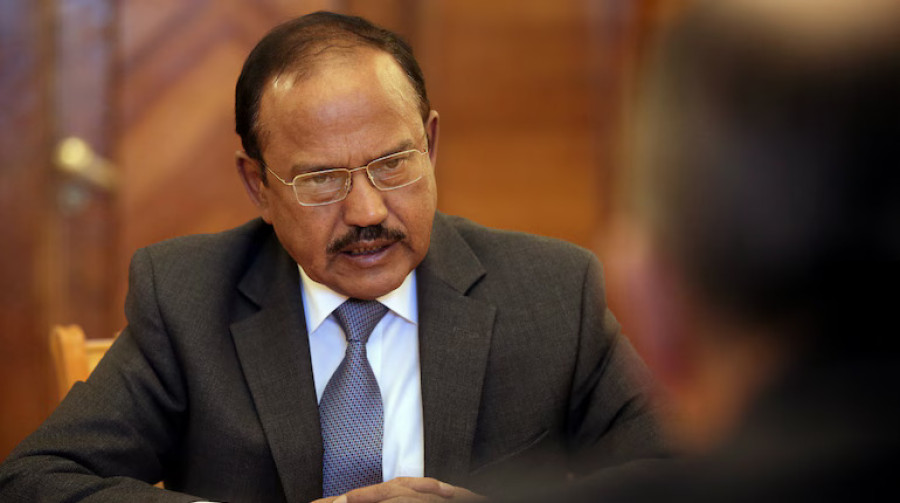Politics
Poor governance led regime change in Nepal, Bangladesh and Sri Lanka: Doval
Indian National Security Advisor Ajit Doval remarks that the most important people are those who build and nurture institutions.
Post Report
India’s National Security Advisor Ajit Doval has said “poor governance” was the reason behind uprisings that led to change of governments in Bangladesh, Nepal, and Sri Lanka over the period of past three-and-a-half years, according to multiple Indian media reports.
Democracy and non-institutional methods of regime change in countries such as Bangladesh, Sri Lanka and Nepal have created their own set of problems, Doval said during a function in New Delhi on Friday.
This is the first time a senior Indian government official made remarks on Nepal’s government change followed by the Gen Z uprising in early September.
Then prime minister KP Sharma Oli resigned on September 9 after failing to handle the situation that emerged following the Gen Z protest that started on September 8 and President Ramchandra Paudel appointed former chief justice Sushila Karki head of the government on September 12.
Speaking at the 6th Sardar Patel Lecture on Governance, Doval said, “While democracy has had its successes, it has also created its own problems. It has led to partisan politics where there are dividends in division,” according to an online news portal, The Print.
“The rise and fall of the great empires, monarchies, oligarchies, aristocracies or democracies is actually a history of their governance. In the recent cases of regime change through non-constitutional methods in Bangladesh, Sri Lanka, Nepal and others, these were actually cases of poor governance,” Doval said. And that is how governance matters, he added.
“In the end, it all boils down to the fact that the Roman Empire fell because it was mismanaged. The same applies to the French Revolution, Tsarist Russia, and the Mughal Empire—they all declined. In the post-war period, out of 37 countries that faced various degrees of degradation, 28 failed, were degraded, or got balkanized due to poor governance,” he added. “Change of regimes through non-institutional methods in Bangladesh, Sri Lanka, Nepal and others were actually cases of bad governance.”
According to the Times of India, Doval pointed out that economic failures, food and water shortages, inflation, oppressive taxes, and social conflict are key reasons behind the state failures and stated that governance creates nations and powerful states and role of people is important who build and sustain institutions.
He noted that there are some commonalities on why some states rise and some states fall. “One has been authoritarianism. It has remained relevant in the past 3,000 years of recorded histories,” said Doval. He added: “Institutional decay…internal security collapses or bureaucracies become inept and corrupt. The other factor is economic failures and scarcity of food and water.”
Doval stressed that the power of a nation lies in governance. “The government works through institutions and in the task of nation-building, the most important people are those who build and nurture these institutions,” he said.
Then Bangladeshi prime minister Sheikh Hasina had fled the country after weeks long anti-government protests in August 2024.
Similarly, in July 2022, Sri Lankan President Gotabaya Rajapaksa had fled the country after a people’s uprising against the government.




 18.12°C Kathmandu
18.12°C Kathmandu














